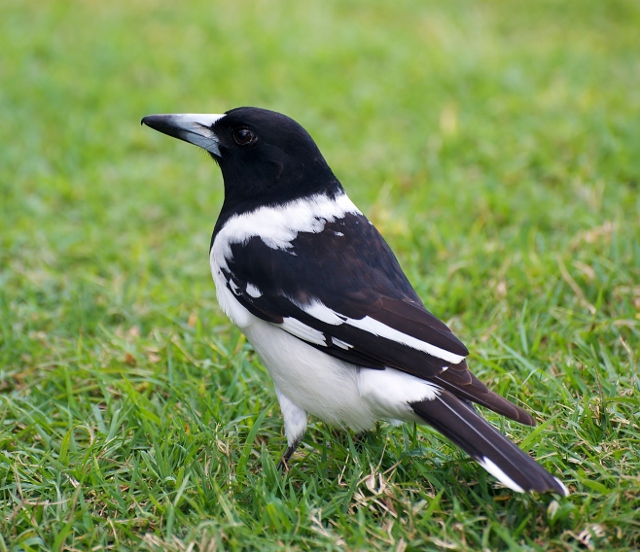Cracticus nigrogularis
 |
| Photo by Michael Schmid (Wikipedia) |
Common name:
pied butcherbird (en); verdugo-de-peito-preto (pt); cassican à gorge noire (fr); verdugo gorjinegro (es); schwarzkehl-metzgervogel (de)
Taxonomy:
Order Passeriformes
Family Cracticidae
Range:
The pied butcherbird is found throughout the Australian mainland, with the exception of most of the southern and south-eastern coastline, and the more arid areas of the inland. It is absent from Tasmania.
Size:
These birds are 32-38 cm long and weigh 140-150 g.
Habitat:
They are mostly found in dry woodlands, coastal scrub and treed farmland. They can also be found in urban parks and gardens.
Diet:
These aggressive feeders prey on small reptiles, mammals, frogs and birds, as well as large insects.
Breeding:
The breeding season of the pied butcherbird varies throughout its large range. The female constructs the nest, a bowl of sticks and twigs, lined with grasses and other finer material. It is usually built in an upright tree fork up to 5 m above the ground. There the female lays 3-5 eggs which she incubates alone for 21 days. The chicks fledge 30 days after hatching.
Conservation:
IUCN status – LC (Least Concern)
This species has a very large breeding range and is described as common over this range. The trend direction for this population is difficult to determine owing to the positive and negative processes affecting the species, but it is not considered threatened at present.







